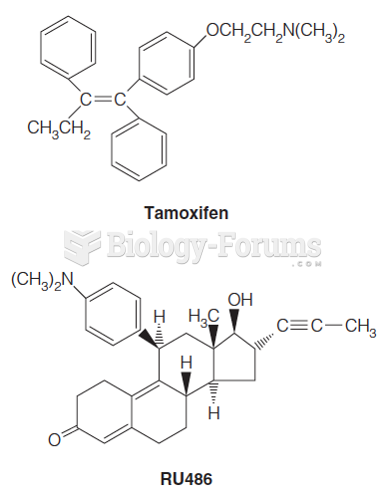|
|
|
It is widely believed that giving a daily oral dose of aspirin to heart attack patients improves their chances of survival because the aspirin blocks the formation of new blood clots.
Elderly adults are at greatest risk of stroke and myocardial infarction and have the most to gain from prophylaxis. Patients ages 60 to 80 years with blood pressures above 160/90 mm Hg should benefit from antihypertensive treatment.
Signs and symptoms that may signify an eye tumor include general blurred vision, bulging eye(s), double vision, a sensation of a foreign body in the eye(s), iris defects, limited ability to move the eyelid(s), limited ability to move the eye(s), pain or discomfort in or around the eyes or eyelids, red or pink eyes, white or cloud spots on the eye(s), colored spots on the eyelid(s), swelling around the eyes, swollen eyelid(s), and general vision loss.
The most destructive flu epidemic of all times in recorded history occurred in 1918, with approximately 20 million deaths worldwide.
Vaccines prevent between 2.5 and 4 million deaths every year.
 Growth hormone disorders. Illustration of a pituitary giant and a pituitary dwarf, both adults of ab
Growth hormone disorders. Illustration of a pituitary giant and a pituitary dwarf, both adults of ab
 Model of malaria protozoa in a red blood cell. New parasites are produced and mature in the RBC, ...
Model of malaria protozoa in a red blood cell. New parasites are produced and mature in the RBC, ...





